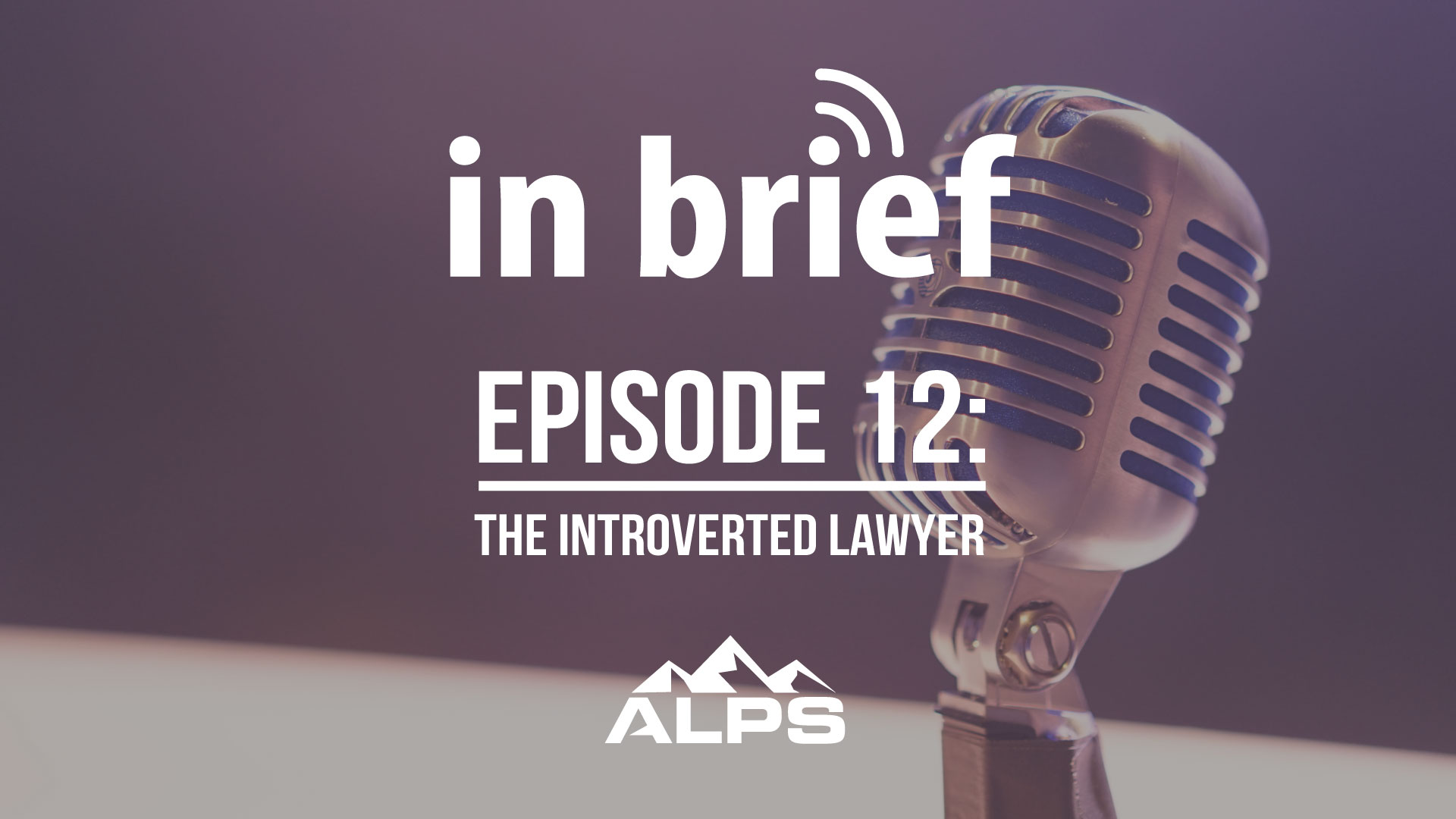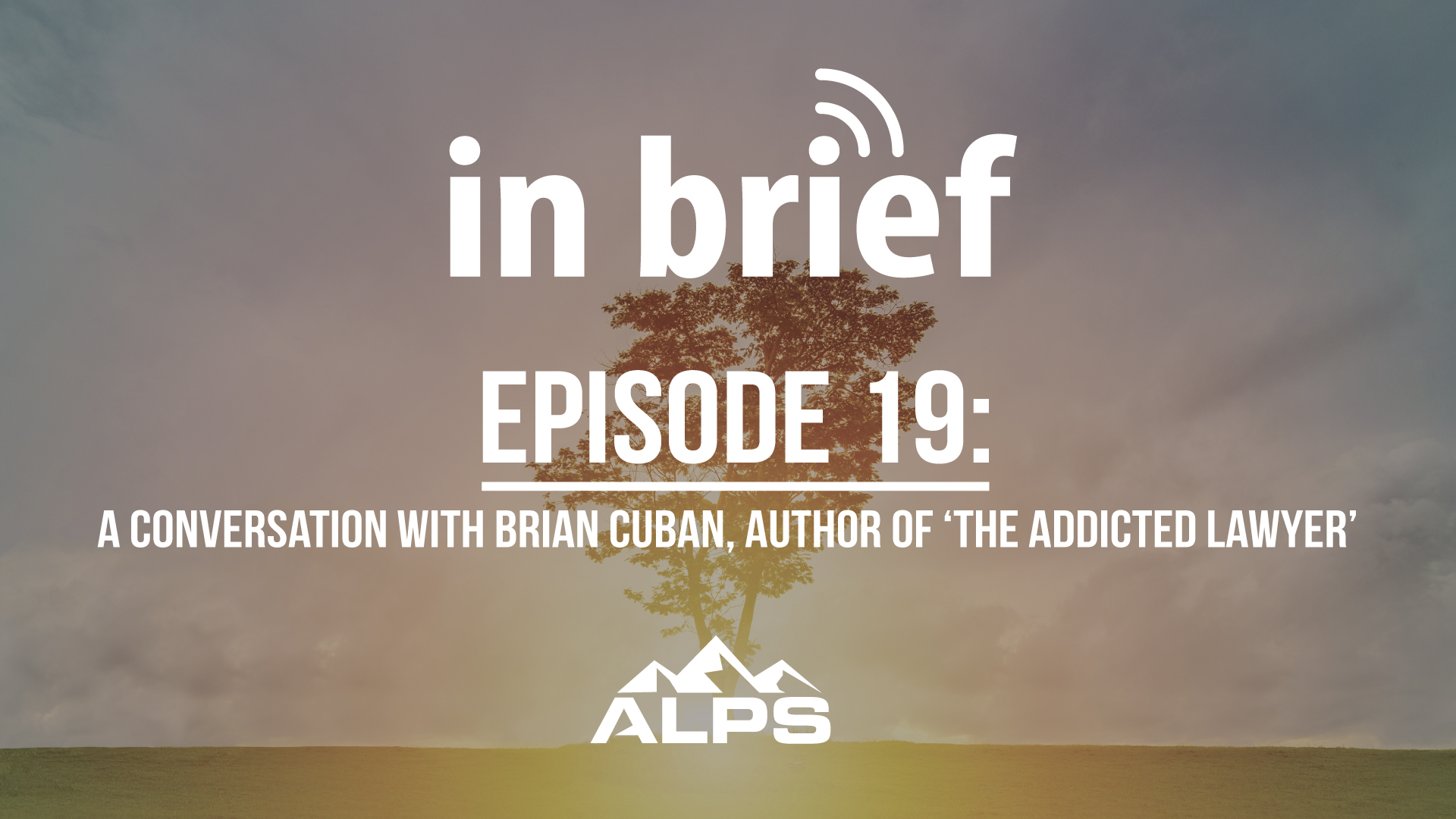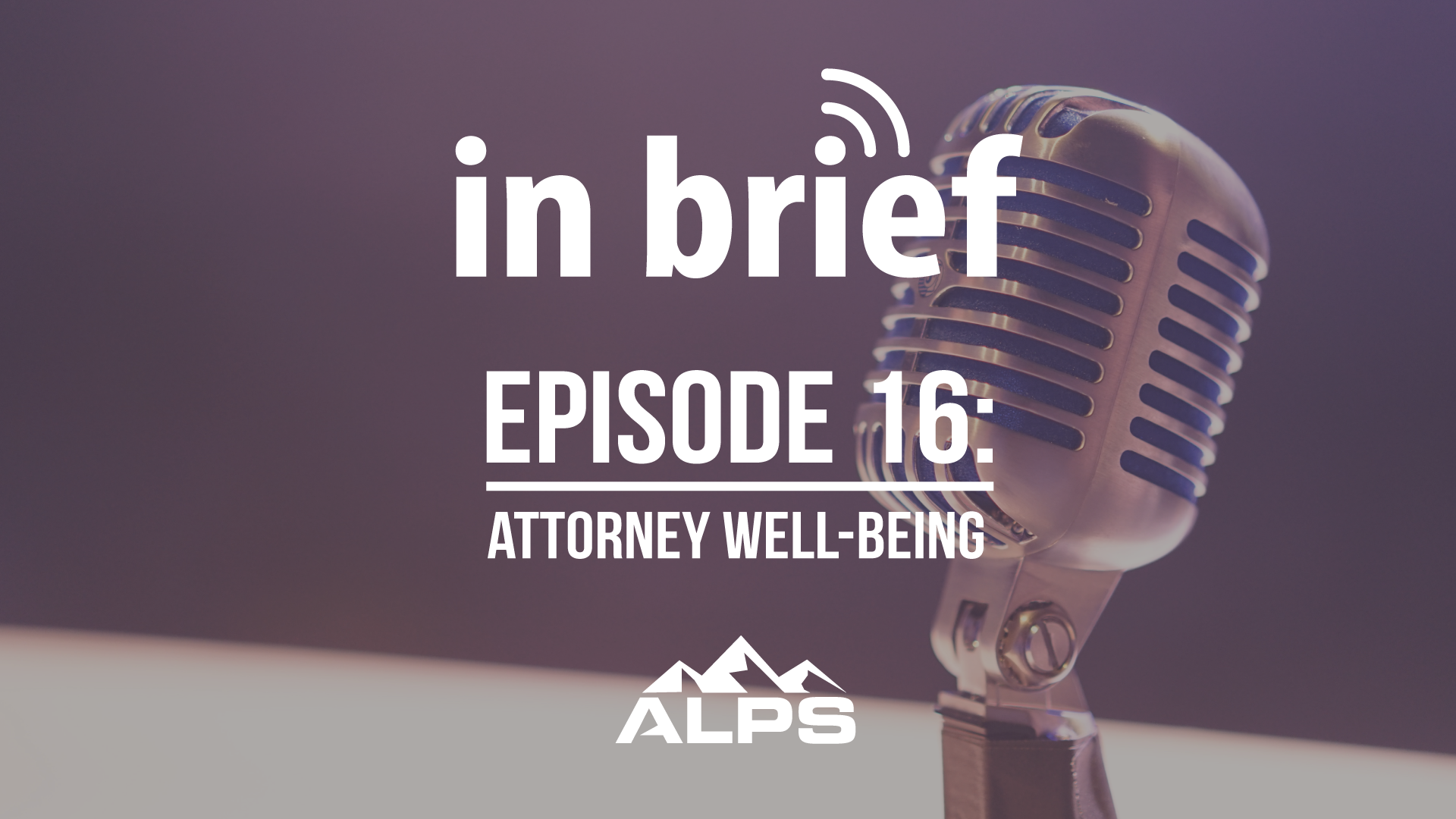12 min read
ALPS In Brief Podcast – Episode 19: A Conversation with Brian Cuban, Author of ‘The Addicted Lawyer’
Addiction, substance abuse and the resulting professional and personal fallout can destroy careers and lives. As another wonderful addition to our ...
 Mark Bassingthwaighte, Risk Manager
Mark Bassingthwaighte, Risk Manager



